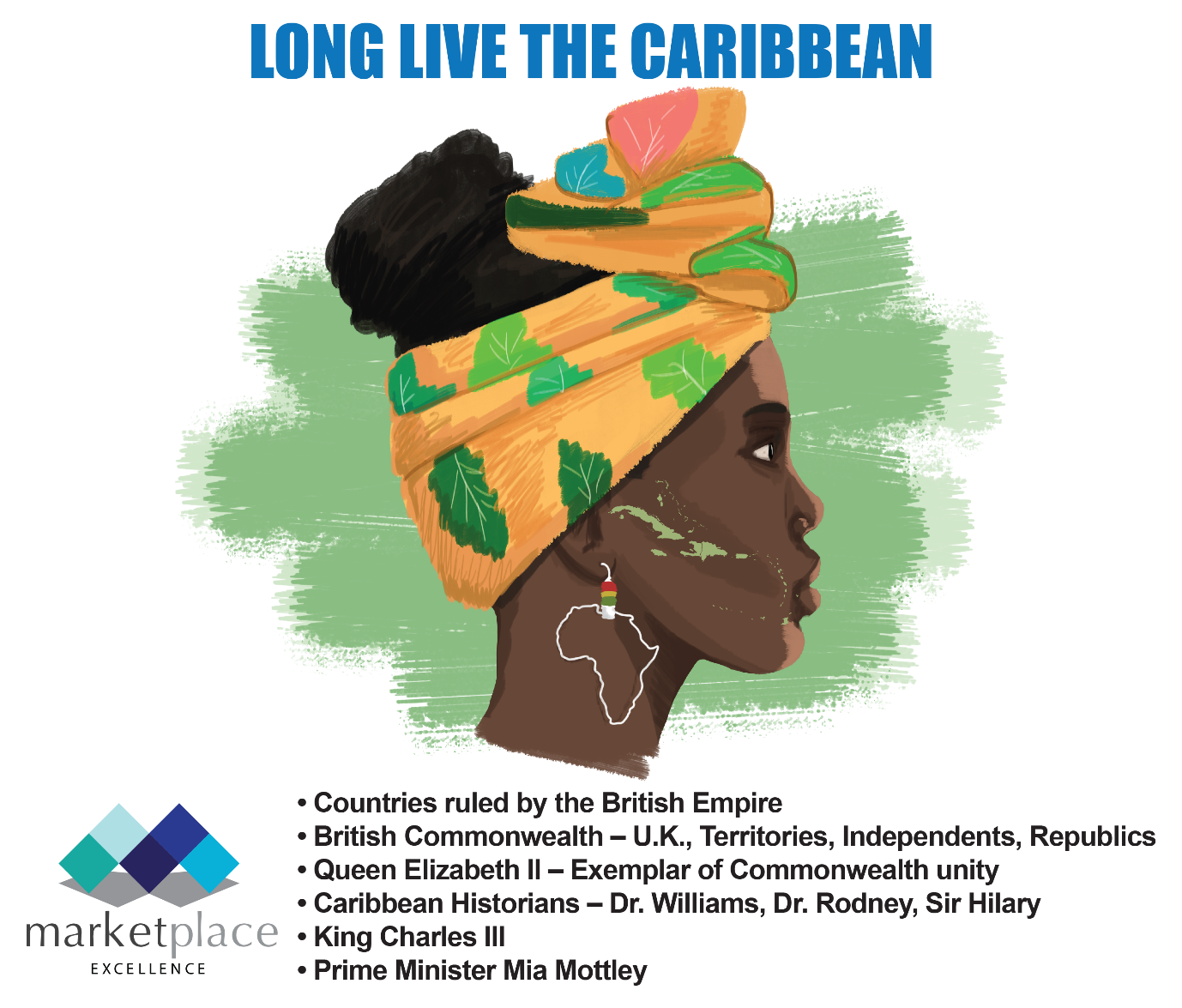“For I know the plans I have for you,” declares the LORD, plans to prosper you and not to harm you, plans to give you hope and a future.” – Jeremiah 29:11
The British Empire started in the U.K. in the 16th century and eventually spanned North America, India, Asia, Australasia, Africa, the Caribbean and the Pacific.
In 1926, the British Commonwealth emerged, consisting of 56 countries (the U.K., British overseas territories, independent countries and republics) all over the globe. Queen Elizabeth II led this for the past 70 years and now King Charles III, her successor on the British throne, assumes this responsibility.
Dame Patricia Scotland, who was born in the Caribbean Island now known as the Commonwealth of Dominica, is the Secretary-General of the London-based Commonwealth Secretariat.
The Commonwealth has recently admitted the African countries Gabon and Togo as its 55th and 56th members, respectively. Both countries are former French colonies.
The Commonwealth member states are home to a total of over 2.4 billion people, almost a third of the world population of 7.8 billion people, with 1.4 billion living in India.
As world leaders gathered in London recently for the funeral of Queen Elizabeth II, António Guterres, Secretary-General of the United Nations, observed: “Queen Elizabeth II was a good friend of the United Nations, and visited our New York Headquarters twice, more than 50 years apart. She was deeply committed to many charitable and environmental causes and spoke movingly to delegates at the COP26 climate talks in Glasgow. I would like to pay tribute to Queen Elizabeth II for her unwavering, lifelong dedication to serving her people. The world will long remember her devotion and leadership.”
Many historians have written extensively on the positive and negative impact of the Caribbean countries under the British Empire and Commonwealth.
Among these are Dr. Eric Eustace Williams (Trinidad & Tobago: 1911-1981) – “Capitalism and Slavery” (1944); Dr. Walter Anthony Rodney (Guyana: 1942-1980) – “How Britain Underdeveloped Africa” (1972); and Sir Hilary Mc. Donald Beckles (Barbados: 1955) – “Britain’s Black Debt: Reparations for Caribbean Slavery and Native Genocide” (2013).
On Dr. Williams’ book, Colin A. Palmer commented: “Capitalism and Slavery remains the most provocative contribution to the study of the complex relationship between the African slave trade, slavery, the rise of British capitalism, and the emancipation of the slave population in the West Indies.”
On Dr. Rodney’s masterpiece, Angela Y. Davis stated: “How Europe Underdeveloped Africa is an ambitious masterwork of political economy, detailing the impact of slavery and colonialism on the history of international capitalism. In this classic book, Rodney makes the unflinching case that African “mal-development” is not a natural feature of geography, but a direct product of imperial extraction from the continent.”
J.D. Smith reflects on Sir Hilary’s writings: “Beckles makes his case for reparations within the context of the global reparations movement following the Durban conference. He holds slavery responsible for the mass poverty, illiteracy, dysfunctional family structure, and ill health in the Caribbean today and considers reparations ‘an act of justice’.”
Barbados Prime Minister Mia Mottley has already advised that she is collaborating closely with King Charles III and the Commonwealth on the sustainability of small island developing states and coastal communities.
The future of the Caribbean depends on an approach by our leaders individually and collectively to address a number of areas.
Here is my proposed five-point plan: (1) governance (structure the region to lay the foundation for what comes ahead); (2) investment (call on King Charles III and the Commonwealth to be our godfather to provide reparative justice through financial security as we implement our plans and move the region forward); (3) life (market our tourism and other sectors to the world and market “grow what we eat and eat what we grow” principles to our people); (4) profit growth (expand our vision, enhance our productivity, operational efficiency and cost containment); and (5) sustainability (train our people to deliver services to international standards).
The Queen is no longer. Best wishes to the King. And long live the Caribbean.

(Dr. Basil Springer GCM is a Change-Engine Consultant. His email address is basilgf@marketplaceexcellence.com. His columns may be found at www.nothingbeatsbusiness.com).
